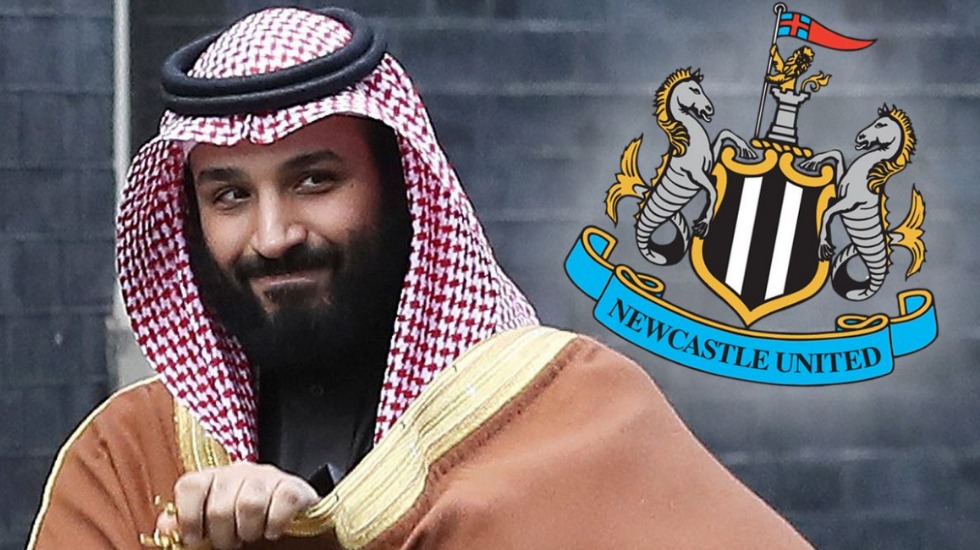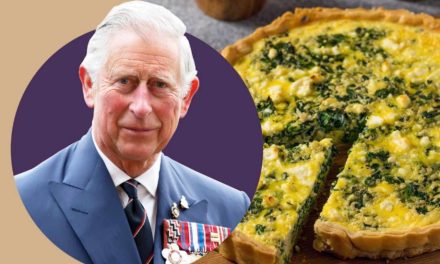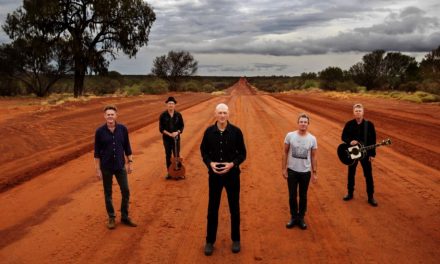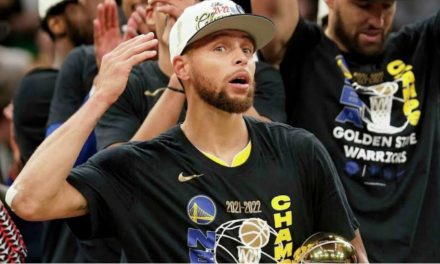Crown Prince Mohammed bin Salman, whose country Saudi Arabia now has a Public Investment Fund which owns English club Newcastle United. Image: The Mirror
“Money is the worst discovery of human life. But it is the most trusted material to test human nature” – Buddha.
That money test has been exercising minds in English football over the last couple of weeks, with the news that one of its famous old clubs – Newcastle United – is to be bought out by a Saudi Arabian sovereign wealth fund.
Although the new owners – the public face of which in the UK is Amanda Staveley – have been keen to stress there are no official ties to the Saudi regime, many are convinced this is the latest attempt to “sportswash” a nations image.
Saudi Arabia has long stood accused of violating human rights, and its Deputy Prime Minister – Crown Prince Mohammed bin Salman – was linked to the assassination of dissident Jamal Khashoggi in 2018.
This isn’t the first buyout of a football club by owners from nations with controversial human rights records. In 2008, Manchester City (which, for transparency’s sake, is the club I grew up supporting) was purchased by a similar investment fund from the United Arab Emirates. Later, French outfit Paris St Germain was taken over by the Qataris.
The UAE and Qatar are two countries who, in 2019, were ranked 127th and 128th respectively on the Human Freedom Index. Saudi Arabia was 149th (out of 162).
The Saudi takeover has focused attention, largely because of the sheer scale of the wealth of its owners. The Public Investment Fund is reported to have a collective worth of nearly $600 billion. For comparison, Manchester City’s owners (the “richest club in the world” until last week), are valued at a trifling $43 billion.
These eyewatering numbers are why Newcastle United fans – by and large – have welcomed their new overlords with open arms. For years, their club, without a major honour since 1969, has underachieved – also-rans in the cash rich Premier League. Now, they are part of the nouveau riche, and the reviled Mike Ashley (a Brit who made his cash in sporting goods) has gone.
The Premier League initially rebuffed the Saudis’ bid to buy the club, until it received reassurances that the investment fund was indeed separate from the Saudi regime. They say they have now received those assurances, but many remain unconvinced.
Yet is it football’s – or even sport’s – responsibility to police morality?
After all, the UK is a country that, in 2021, authorised the sale of over $2 billion worth of arms to the Saudis – weapons that were used in the war with Yemen. The Guardian reported in February that the sales were made after officials concluded there were only “isolated incidents” of civilian casualties from bombing raids using British-made arms. Nothing to see here – just a bit of collateral damage.
The tallest building in London – The Shard – is 95 per cent owned by the Qatari state. Meantime, the English capital itself has become such a home for UAE investment that the British ambassador in Dubai once labelled it “the eighth emirate”.
The UK’s trade with six Gulf states – Bahrain, Kuwait, Oman, Qatar, Saudi Arabia and the UAE – is estimated to be worth around $62 billion a year, making them the nation’s fourth-largest trading partner after the USA, European Union and China. Those figures will surely increase in the era following Brexit.
So, is football merely following its government’s lead?
Many were uneasy about the UAE’s investment into Manchester City (myself included) 13 years ago, and while those concerns remain, there is ambiguity, particularly among the club’s fan base. This is because the investment has reaped hitherto unseen benefits for the people of Manchester, which were badly needed, but didn’t always make for sexy headlines.
One example is the regeneration of derelict industrial land in East Manchester into the new Etihad Campus, which brought employment for those involved in construction in the first instance, in a very deprived area of the city.
Part of the campus includes community facilities such as the Connell Sixth Form College (named after Anna Connell, a rector’s daughter who was one of the founders of the club as a response to the religious and racial conflicts in Manchester around the 1870s) which offers free education to enrolled students, and access to the club’s facilities.
In March 2021, City also hosted a jobs fair for the local unemployed, with around 170 companies attending. The club provided careers advice and offered a range of training courses for those who attended.
Those initiatives don’t nullify a poor human rights record, nor counterbalance the oppressive “kafala” system of employment in the Gulf, but they do go some way to explaining why fans see shades of grey in the arguments – and yes, trophies and star players are a major factor too.
The north of England, in particular, has long been ignored by consecutive Conservative administrations. In 2018, it was revealed that James Wharton, appointed to be the Minister of State for the (imaginatively titled) Northern Powerhouse and Local Growth, barely visited the region in his first six months in the job in 2016. So embarrassed was the government that it spent $60,000 of taxpayer money trying to conceal that fact for the best part of two years.
PLEASE HELP US CONTINUE TO THRIVE BY BECOMING AN OFFICIAL FOOTYOLOGY PATRON. JUST CLICK THIS LINK.
While London looked the other way, the local authorities in Manchester became adept at securing European Regional Development Grants via the EU to regenerate parts of the city. Manchester is a place used to working with foreign investment, in part due to necessity.
So, if an overseas business puts money into a community as well as its football club, maybe it is understandable if some fans – mindful of that history – are prepared to turn a blind eye.
But why do football clubs need such rich sugar daddies in the first place?
The answer, in part, can be found in Australia.
When Australian-born Rupert Murdoch bought into English football in the early 1990s via his Sky Sports TV network, he transformed its fortunes. The Premier League became a global juggernaut, and the riches on offer set in train an arms race.
In 2020-21, Manchester City won almost $284 million for winning the Premier League. Sheffield United – which finished dead last – earned $168 million. Back in 1991-92 – the last season before the Premier League came into existence – the collective revenue of the 22 clubs in the old First Division was $313 million. Today it is over $4.5 billion.
Finishing in the upper echelons of the Premier League also unlocks the door to more riches via qualification for the UEFA Champions League. Last season, it is estimated Chelsea (owned by another controversial figure in Roman Abramovich), earned $175 million for winning that competition – Manchester City another $119 million for reaching the final. By way of contrast, the winning team in the AFL Grand Final in 2021 earned just over $1 million.
To drop out of the Premier League – which was a very real possibility for Newcastle United – is the equivalent of falling through a financial trapdoor, with Championship clubs picking up “only” $12 million per season. Many clubs in the past – Coventry City and Bradford City to name but two – have gone into freefall post-relegation, and dropped further down the English pyramid.
Thus, to stay – or even get on – the gravy train, requires heavy initial investment to compete.
For football in Australia, things are a little different. There is no prize money on offer in the A-League(s), only a modest return from the regional Asian Champions League, and clubs operate on strict salary caps that limit spending.
Yet our domestic competitions remain connected to the global ecosystem of football – and in particular, the transfer market.
When Melbourne City (owned by City Football Group), picked up Aaron Mooy on a free transfer from Western Sydney Wanderers in 2014, it represented a very smart piece of business. Two years later, Mooy had established himself as one of the best players in the local competition, and was “signed” by the parent club, Manchester City.
Mooy never played a game for City – instead, he was immediately loaned out to Huddersfield Town, where he had a stellar campaign in the Championship, whereupon the Terriers bought him outright. That one transfer alone earned the CFG over $18 million – paying off the $11 million (with change to spare) they had spent in purchasing the old Melbourne Heart in 2014 in one hit.
In an ideal world, A-League clubs would be owned and run by Australians. Yet culturally, Australian business is not yet fully attuned to the global game. Those who do invest – such as Clive Palmer or Nathan Tinkler for example – have had mixed records of success (and commitment) to say the least.
If football wants to remain professional here, then foreign investment will, in all likelihood, be necessary – at least in part, for the foreseeable future.
Some here – as in the UK – believe that the baggage that comes with such owners is too big a price to pay. They have a point.
Yet without resorting to “whataboutery”, does this prevent Australia from doing business with China, despite the controversy over the treatment of Uyghers and Tibetans? Does it stop sporting competitions being propped up by Murdoch’s News Corp, despite the rather ugly revelations of the Leveson inquiry in 2012?
Should the Socceroos have gone to Russia for the World Cup in 2018, a competition which helped “sportswash” the Putin regime? Should Emirates have been allowed to sponsor the Melbourne Cup, or Etihad pay money to put their name to Docklands Stadium?
Given the controversy of how they were awarded the tournament, and the deaths of migrant workers on the construction of the stadiums, should we travel to Qatar for the World Cup in 2022 if we qualify?
These are difficult questions. Football clubs may be considered “institutions” by their fans but the modern reality in a global game such as football, is that they are a business.
Big business has tentacles in so many places, some of which are unsavoury – and most of us are touched by it, whether we are aware of it or not.
Thus, where money is concerned, human nature normally fails the test.












Fair point Simon, but the Saudi Arabian regime really are beyond the pale. What would you think if the Taliban bought a club? Cause if you give them a pile of money and a veneer of sophistication, they’re pretty much the same as the Wahhabist zealots who now own Newcastle.